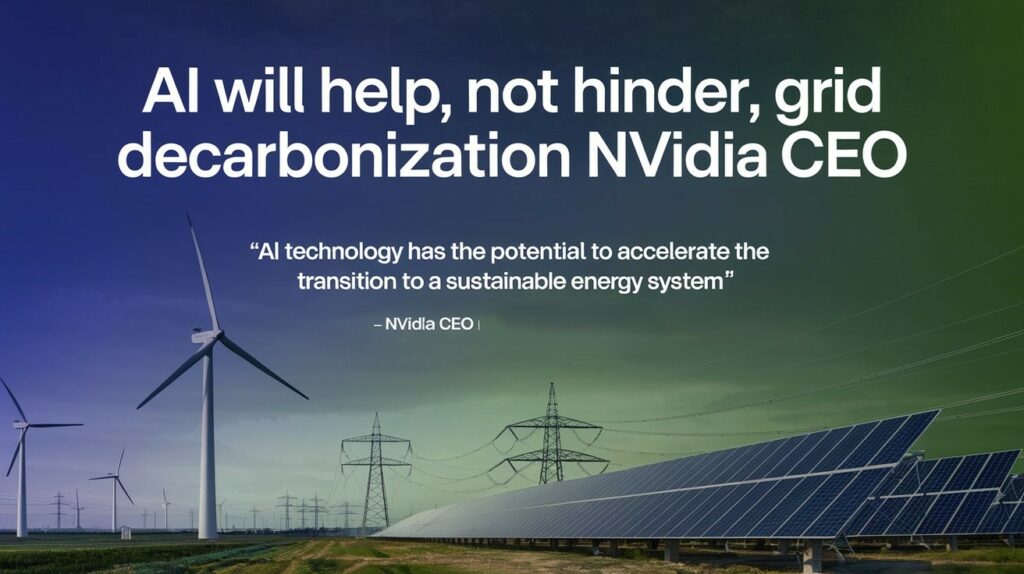
Prince Thakur
7 months ago
AI Will Help, Not Hinder, Grid Decarbonization: NVIDIA CEO
NVIDIA CEO Jensen Huang emphasizes that artificial intelligence (AI) will play a critical role in accelerating grid decarbonization. By optimizing energy consumption and enhancing grid management, AI technologies can significantly reduce carbon emissions. Huang highlights that AI can facilitate the integration of renewable energy sources, making grids more efficient and resilient. Additionally, AI-driven analytics can predict energy demand and supply fluctuations, ensuring a balanced energy ecosystem.

Artificial intelligence will make computing and data centers more efficient — if they’re built in regions with excess energy, NVIDIA CEO Jensen Huang said.
Dive Brief:
- Despite growing concern about the impact of artificial intelligence on demand for electricity — and for fossil fuel generation — NVIDIA CEO Jensen Huang said Friday that AI would help the world achieve decarbonization.
- Although it initially requires vast amounts of energy to train, AI is more efficient in the long-run than conventional computing, Huang said. He also argued that AI could be integrated into the grid to deliver power more efficiently.
- U.S. data center load is expected to grow to nearly 21 GW this year, up from 19 GW in 2023, according to a Federal Energy Regulatory Commission report this month. Data center electricity demand across the U.S. is expected to climb to 35 GW by the end of this decade, according to the FERC report. Huang said this growth should be seen as a sign of prosperity.
Dive Insight:
- AI should be seen as a potential climate solution, Huang said Friday during a webinar hosted by the Bipartisan Policy Center.
- “Using artificial intelligence to solve problems will use less energy than using calculation to solve problems,” Huang said.
- For example, he said that an AI model can predict the weather a thousand times more efficiently than conventional computing. Although it will take a significant amount of energy up-front to train the AI, he said, once that model is created it could be used repeatedly all around the world, ultimately resulting in energy savings relative to conventional computing processes.
- AI could be used to upgrade the grid and enable it to “redirect energy in a smarter way,” and could perhaps improve carbon capture and sequestration technologies, Huang said. However, he acknowledged that any efficiency gains created by AI would likely be absorbed as society assigns a greater number of tasks to AI.